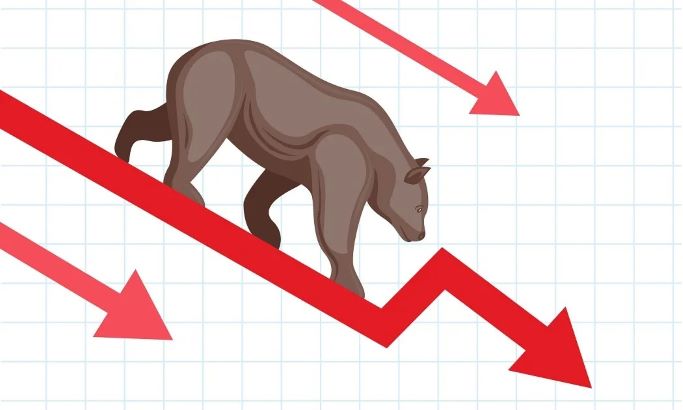Nigerian Stocks Lose ₦4.6 Trillion Amid Heavy Selloffs and Market Anxiety

Nigeria’s equities market took a sharp bearish turn on Tuesday, erasing a staggering ₦4.6 trillion in market value as investors engaged in widespread selloffs across heavyweight counters. The market correction, analysts say, reflects a mix of profit-taking, weak earnings, and policy jitters shaking investor sentiment in the short term.
The Nigerian Exchange (NGX) witnessed steep declines across major bellwethers such as Dangote Cement, MTN Nigeria, BUA Cement, Transcorp Power, and Oando, alongside over 56 other decliners that dragged the benchmark index lower.
The NGX market capitalization tumbled from ₦94.53 trillion to ₦89.88 trillion, while the All-Share Index (ASI) plunged by 7,454.60 points or 5.01%, closing at 141,327.30 points—its sharpest single-day loss in months. The market’s year-to-date (YTD) return subsequently fell to 37.31%, signaling growing investor caution ahead of the year-end trading cycle.
Sell Pressure Engulfs Cement and Telecom Giants
The rout was led by some of the market’s most capitalized equities. Dangote Cement and MTN Nigeria both fell by the maximum 10%, settling at ₦594.00 and ₦429.30 per share, respectively.
Likewise, BUA Cement, Transcorp Power, and Oando Plc suffered 10% declines each, reflecting a broad-based loss of confidence in the industrial and energy sectors.
Meanwhile, a handful of gainers attempted to stem the slide, led by NCR Nigeria (+9.82%), Berger Paints (+2.56%), FCMB Group (+0.96%), and AXA Mansard (+0.25%), but their impact proved negligible in the face of the market-wide selloff.
Market breadth closed deeply negative, with 61 losers against only four gainers, underscoring the scale of bearish dominance.
Trading Volumes Surge Despite Market Losses
In a paradoxical twist, market activity was unusually vibrant despite the sharp losses.
Volume jumped by 80%, turnover surged 159%, while the number of deals fell slightly by 9%, suggesting a frenzy of sell orders rather than investor apathy.
Total transactions stood at 655.9 million shares valued at ₦29.4 billion across 29,558 deals, compared to 364.4 million shares worth ₦11.4 billion traded in 32,564 deals the previous session.
FBN Holdings recorded the highest trade volume with 68.27 million shares, while Geregu Power Plc posted the highest transaction value at ₦4.42 billion, signaling sustained institutional activity in blue-chip counters.
Analysts: Weak Q3 Earnings, Policy Uncertainty Drive Panic Selloffs
Speaking to BRANDECONOMY, Mr. David Adonri, Vice Chairman of Highcap Securities Ltd, attributed the sharp downturn to a cocktail of underwhelming third-quarter results, misinterpreted foreign policy remarks, and anxiety over a proposed 30% capital gains tax.
“The selloff started last week when several companies, particularly in banking and consumer goods, released weak Q3 earnings that fell short of investor expectations,” Adonri explained.
“Some banks could not sustain their earlier dividend levels, while FMCG players reported soft revenues due to weak consumer demand. Those disclosures weakened market fundamentals.”
He noted that the situation was aggravated by an external factor — misinterpreted comments from former U.S. President Donald Trump, which some investors viewed as signaling concern over Nigeria’s economic reforms.
“Instead of reinforcing confidence, those remarks triggered panic selling among offshore and institutional investors who were already cautious about Nigeria’s policy direction,” he added.
Tax Concerns Add to Market Anxiety
Adding to investor unease, the government’s proposed 30% capital gains tax — expected to take effect in January — has spooked major market participants.
According to Adonri, many high-net-worth individuals and institutional investors view the policy as punitive and counterproductive in a fragile market.
“This policy has sent a wrong signal at a delicate time. Many investors are now liquidating positions or holding back on new commitments,” he said.
“Without careful policy calibration, this could dampen capital inflows and weaken market recovery efforts.”
Buying Opportunities Emerge Amid the Bearish Storm
Despite the market bloodbath, analysts describe the current correction as a “buyers’ market” — an opportunity for investors with liquidity to pick up quality stocks at deep discounts.
“The sharp decline has created highly attractive entry points, especially in fundamentally sound stocks,” Adonri noted.
“Investors with cash and patience will be the biggest beneficiaries of this correction once the market stabilizes.”
Indeed, BRANDECONOMY’s analysis indicates that many bellwether stocks are now undervalued relative to earnings, dividend yields, and asset fundamentals. This could set the stage for a strong rebound once market sentiment improves and policy clarity returns.
BRANDECONOMY INSIGHT: The Anatomy of a Correction
The ₦4.6 trillion meltdown highlights the fragility of investor confidence in Nigeria’s capital market amid macroeconomic uncertainty. With inflation still in double digits, interest rates rising, and fiscal reforms under scrutiny, investors are rebalancing portfolios toward fixed-income instruments and dollar-denominated assets.
However, such corrections are not entirely negative. Market analysts emphasize that sharp declines in stocks often flush out speculative positions and pave the way for value-driven accumulation.
The key, experts argue, lies in transparent policy communication, investor education, and market-friendly tax structures that encourage long-term participation rather than short-term panic.
Market Outlook: Stabilization Expected After Short-Term Shock
Looking ahead, BRANDECONOMY forecasts a short-term consolidation phase, with potential rebounds driven by:
- Improved liquidity as institutional investors reinvest year-end payouts;
- Policy assurances from the CBN and Ministry of Finance on taxation and capital repatriation; and
- Corporate actions, including dividend announcements and share buyback programs.
Investors are advised to stay defensive, focusing on blue-chip stocks with strong fundamentals and sustainable earnings — notably in banking, power, and telecom sectors.
“The correction was overdue, but it’s also healthy,” BRANDECONOMY analysts conclude.
“The next rally will be built on fundamentals, not hype.”











